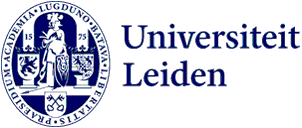
Parental role self-regulation in Western and non-Western context
PhD candidate at the Parenting, Child Care and Development programme group Wei Li examined longitudinally the role of parents in self-regulation of young children in the Netherlands and China during their first two years of life. Li also specifically focused on the role of grandparents in China. This dissertation reports the results of the first longitudinal study of the role of mothers and fathers in the early development of self-regulation in both Western and non-Western contexts. Promotion April 22, 2021.
Self-regulatory ability
Self-regulation is the ability to get a grip on one's thoughts, emotions and behavior. It is a skill that affects various aspects of life. Parental behavior is especially important for the early development of self-regulatory ability. Early childhood development lays the foundation for future life. Problems with self-regulation can therefore lead to significant personal and social problems, such as addiction to drugs, alcohol or cigarettes, health problems, violence and crime.
Parental influence
Most parenting and infant research focuses only on mothers. In addition, relatively few studies have examined non-Western samples. Therefore, the aim of this study was to gain more knowledge about the influence of the mother ánd the father on early self-regulation in the Netherlands and China.
Western parents are found to be more authoritative (i.e., autonomous, emotionally supportive and low power-assertive) while Chinese parenting is characterized as authoritarian and controlling. These clear contrasts between Western and Chinese parents make China a particularly interesting context in which to study whether these differences influence young children in the two countries.
New insights
"Because early childhood development lays the foundation for future life, I hope this dissertation inspires other researchers to do more research on the contribution of grandparents to child development in China and other non-Western countries. More non-Western research can provide new insights into the Western-dominated research field. And the more we know about families in non-Western contexts, the better those families can be supported in culturally appropriate ways." according Li.
